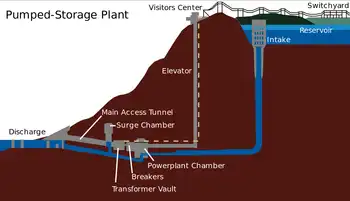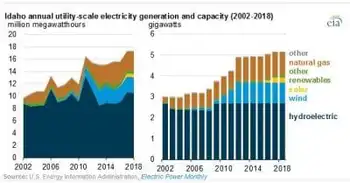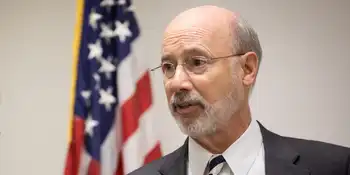Power Utilities Score Victory: OEB Rejects CRTC Approach to Utility Pole Rates
By Canada NewsWire
Electrical Testing & Commissioning of Power Systems
Our customized live online or in‑person group training can be delivered to your staff at your location.

- Live Online
- 12 hours Instructor-led
- Group Training Available
"CEA's members do not seek to make a profit from cable companies' use of power poles - only to recover a fair share of their costs," stated Kelly Staudt, Vice-President Transmission and Distribution for SaskPower and Chair of the CEA's Joint Use Structures and Strategic Telecommunications Task Group. "As a result of the OEB's decision, cable companies in Ontario will have to pay their fair share of the costs of the power poles they use."
The OEB decision will allow power utilities in Ontario to charge cable companies $22.35, with a right for power utilities to return to the Board to seek more specific charges based on local conditions. The increased charges will result in an inconsequential increase in cable companies' overall costs; particularly in the context of the hundreds of millions of dollars of increased annual revenues they have obtained over the last five years from their use of utility poles to sell high-speed Internet services.
Most notable is the Ontario Energy Board's decision to adopt the method proposed by Canada's power utilities for calculating the charge and to reject the approach proposed by the cable companies, the CRTC and many regulators in the United States. Power and cable companies have agreed to negotiate the remaining terms of access to power poles. In much of Canada, the use by cable and telecommunication companies of power poles is amicably negotiated, not regulated. "Canadian power utilities are committed to the application of fair and economically efficient models for setting power pole rates," noted Kelly Staudt. "We have shown that through negotiation we can work together toward the common goal of minimizing the number of support structures across the country, with provincial energy regulators well placed to resolve issues requiring regulatory or adjudicative intervention."
Mr. Staudt also noted the value of CEA's efforts in this field: "The Association has provided a national perspective on this issue at the federal and provincial levels, and has assisted with the development of best practices."
In 1997, cable companies sought and received from the CRTC a regulated power pole access rate. However, in 2003, the Supreme Court of Canada ruled that the CRTC had no jurisdiction over power poles. In 2004, cable companies asked that the Ontario Energy Board impose the same rate and rate methodology applied by the CRTC and overturned by the courts. It is this request that the Ontario Energy Board has rejected.
Founded in 1891, CEA is the national association of the Canadian electricity industry. Its members ensure reliable electricity service to Canadians from coast to coast.











